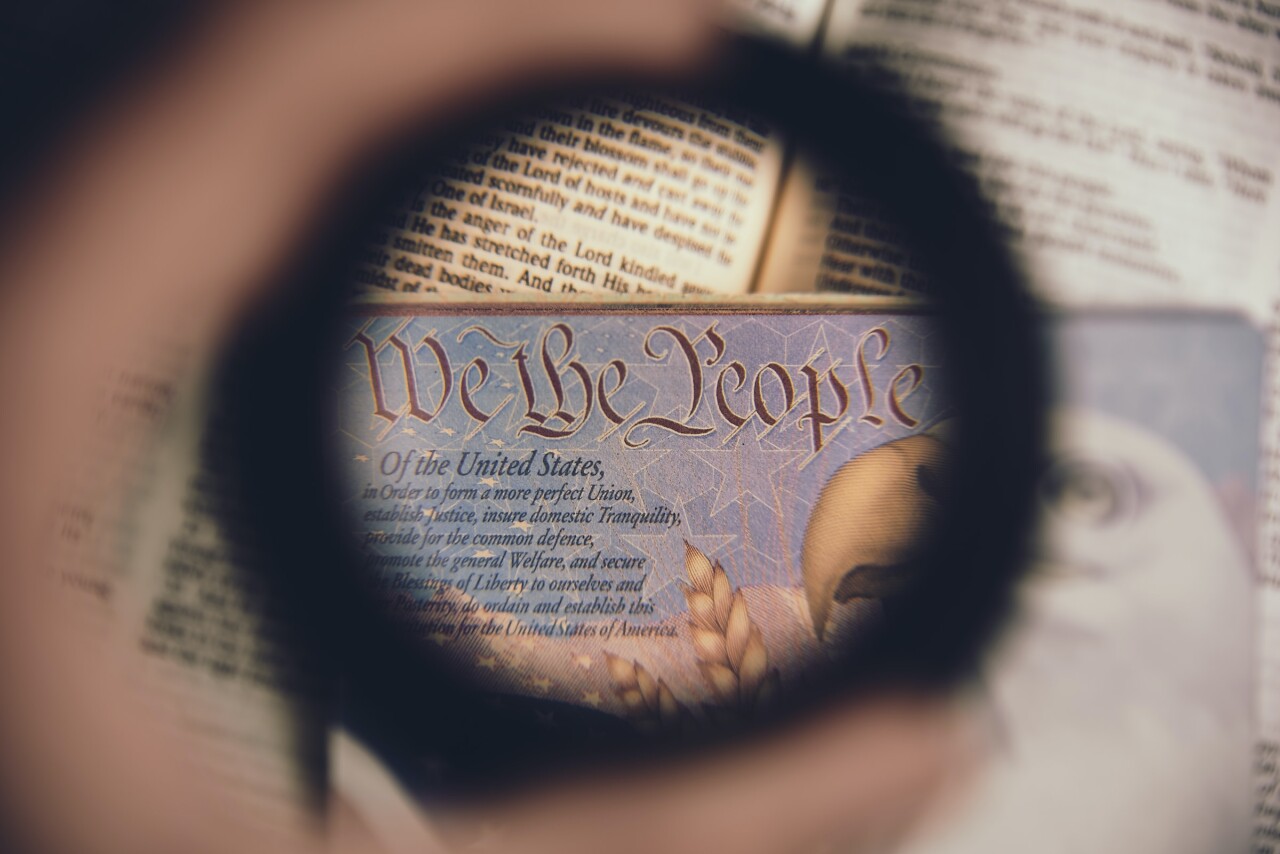Where is liberty today? It is one of the founding principles in our Declaration of Independence. Yet it is not being upheld. Black Lives Matter demonstrators are free to demonstrate, but they have stepped outside the freedom of assembly to coerce people and destroy property and businesses. On the political front, there is no bipartisanship because either side abhors the principles of the other side. Bills are discussed and passed on party lines without rational discussion and input from those who see the issues differently.
Locally we have polarized around ideas like Climate Change, water access, or LGBTQ+. If some differ from a certain position it is acceptable to isolate and not patronize their business. Large corporate businesses have also decided to polarize around issues and throw their profits towards their agendas, exclude people from social media, or de-platform certain websites or postings because of their views. If not de-platformed postings are censored. In the past businesses and corporations remained neutral on such matters because they understood that they served all types of people with differing views. Now they have decided they can punish certain states who pass legislation differing from their views. We are also looking forward to a future where the media and high-tech businesses are joined with the government to push a joint agenda.
The common denominator in each of these instances is coercion. Coercion occurs when one person’s actions are made to serve another person’s will, not for his own but the other’s purpose. Such coercion implies both the threat of inflicting harm and the intention thereby to bring about certain conduct. As our society accepts coercion it lays down the framework for coercion of another kind; the coercion of government. Government entities are susceptible to this use of power. Any justification that provides a rationale for exercising power is easily used such as the loss of a species, climate emergency, or a pandemic. Resorting to coercion means that the foundations for good government and its purpose to protect our inalienable rights are forfeited. Without these rights and an enlightened view of mankind, we also lose our ability to effectively deal with life issues such as caring for the environment.
Critical race theory in itself is a form of coercion. Its very concept is to root out all systemic oppression. To do so it must rise and exert its power to suppress any intrusion upon its intended goal. So far that includes personal safety, equity, and environmental safety. To achieve this critical race theory is embraced by institutions, individuals, and government. In other words, critical race theory has created an oppressive power structure by enlisting institutions, individuals, and government. If power structures according to critical race theory are oppressive, critical race theory is itself oppressive and has its power structure of enslavement.
Liberty as originally understood is freedom from coercion. This includes freedom of conscience, free speech, acceptance that others can have differing views on topics and issues and differing worldviews, and the right to private property ownership. Essential to a working dynamic for liberty to exist is the understanding that truth exists and can be clarified through debate, sound reasoning, and increasing one’s knowledge of the factors contributing to understanding an issue or position. However, postmodernism is a reaction to modernity and the use of reason for deriving truth. Therefore it rejects truth and any meta-narrative. Critical Race theory also rejects truth in an absolute sense because of its commitment to Hegelian dialectic reasoning.
A close association with Liberty is the Rule of Law. Rule of Law is a principle rather than a specific set of laws. The principle is the government's commitment to rules which are fixed and announced beforehand which makes it possible to foresee with fair certainty how the government will use its authority and coercive power in given circumstances so that individuals can base their affairs with significant confidence based on this knowledge. While the government does restrict individual freedoms, the choice of rules in the case of the Declaration of Independence is to secure the rights of life, liberty, and pursuit of happiness. The Rule of Law as a principle limits the government from ad hoc action that will stultify individual efforts. In this context, individuals are free to pursue personal ends and desires with certainty that powers of government will not be used deliberately to frustrate one’s efforts.
Our governments, whether state or federal have stepped away from the concept of the Rule of Law to increasingly devote efforts towards central planning. This takes away from the many actions and decisions made by individuals and businesses that are effective in addressing needs and confines decision-making to government officials who are often removed from the information and context to make an accurate decision. Due to limited knowledge and resources, government planners must choose between needs and establish goals based upon some criteria of merit. Often such planning leads to extemporaneous decision-making as needs and effects change. Thus, we are seeing more ad hoc actions by our government such as those associated with COVID emergencies, declaration of the end of fossil fuels, and subsidized alternatives to force individual choices to support a certain outcome.
Our loss of liberty has the very real danger of supporting destructive outcomes that hinder a viable economy and the personal creativity to sustain the economy of scale and knowledge to address the issues we face.
By Dick Ewing
May 29, 2021
